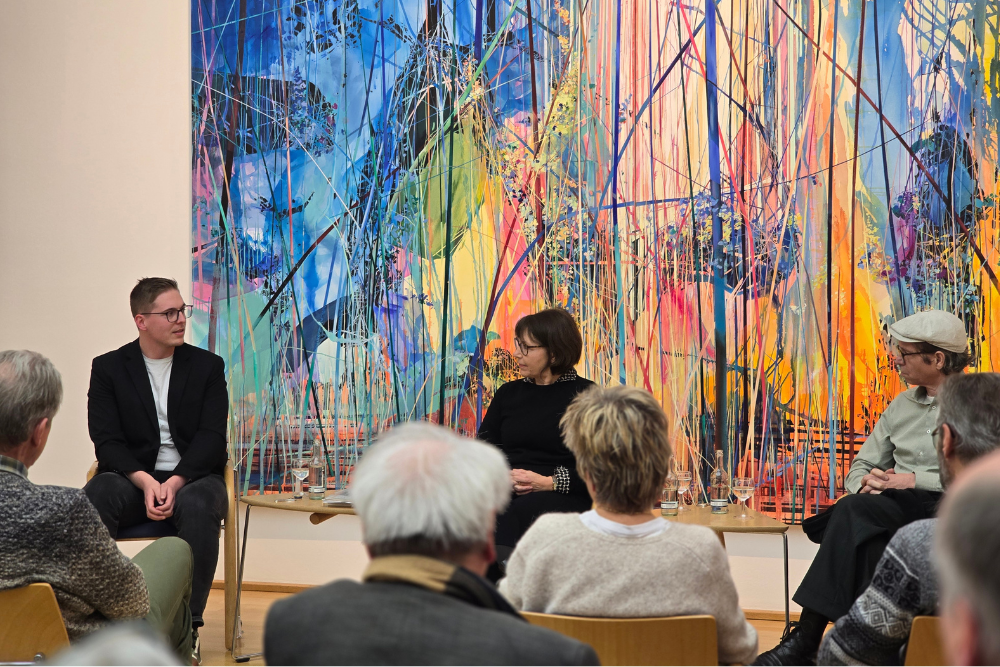
On January 23, 2025, the Kunstmuseum Ahlen hosted an insightful panel discussion entitled “It’s all fake! What is AI doing to us?”, in which Lamarr scientist Matthias Jakobs from TU Dortmund University took part. The event was part of the exhibition “Reality Check – When things are not what they seem” and attracted numerous interested parties who wanted to find out more about the challenges and opportunities of artificial intelligence (AI).
In a lively discussion, Dr. Martina Padberg, the curator of the exhibition, Achim Mohné, artist and professor of documentary photography at Dortmund University of Applied Sciences and Arts, and Matthias Jakobs explored the various facets of the topic. The discussion offered a platform for exchanging views on the fusion of digital media with reality and posed critical questions on the perception of truth in images.
The participants highlighted both the positive aspects of AI, such as its support in creative processes, as well as the potential dangers that can arise through manipulation or falsification. Particular emphasis was placed on society’s dependence on AI technologies and their influence on art and everyday life.
“We have lots of questions – do you?” was the motto of the event and invited the audience to actively participate in the dialog. The lively discussion fostered an intensive exchange about expectations of AI: where can it be helpful and where does it harbor risks?
Matthias Jakobs contributed his expertise from the Lamarr Institute for Machine Learning and Artificial Intelligence and emphasized the importance of a critical approach to new technologies in an increasingly digitalized world.
The panel discussion was made possible by the Förderkreis Kunstmuseum Ahlen and represented an important contribution to the reflection on the influence of artificial intelligence on our perception. The event ended with a call for a personal “reality check” in the digital age – an invitation to all those present to actively engage with the topics.
This successful panel discussion was an important step towards a better understanding of the interplay between art, technology and human perception.